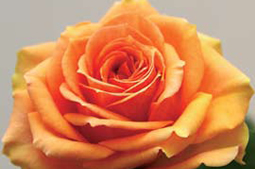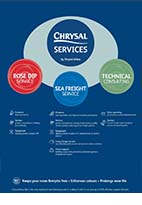 Overproduction, low demand, high fertilizer prices, VAT that isn’t refunded by the government, unfavourable exchange rates. When talking with the growers, it’s the combination of these factors that contribute to the challenging year that many Kenyan rose growers are experiencing. Notwithstanding the Kenya Flower Council predicting a 20 percent growth of value of Kenya’s flower exports over 2019, with the summer season around the corner these circumstances are not likely to improve any time soon.
Overproduction, low demand, high fertilizer prices, VAT that isn’t refunded by the government, unfavourable exchange rates. When talking with the growers, it’s the combination of these factors that contribute to the challenging year that many Kenyan rose growers are experiencing. Notwithstanding the Kenya Flower Council predicting a 20 percent growth of value of Kenya’s flower exports over 2019, with the summer season around the corner these circumstances are not likely to improve any time soon.
So, how does this situation influence the atmosphere at the NHFAIR
The challenging year is the talk of town, but growers remain hopeful. “It will separate the men from the boys”, an exhibitor says. And some see this situation as an opportunity for the growers. “It forces the growers to look at their costs and become more efficient.”
A closer look at the influencing factors
The overproduction and low demand have more or less the same reason: the weather. At the production and the export destination, it has been too good, resulting in a higher production at the farms and a low demand in Europe, where most Kenyan roses go. As a result, the prices decrease. For Valentine’s Day for example, there was too much product on the market (also because several farms still flush for this holiday and Ethiopian production was higher too), resulting in low prices, much lower than expected.
The high fertilizer prices have caused a headache for almost every grower as there was a fertilizer shortage on the market. “At that time, the fertilizer prices were 120% more expensive”, a grower tells us. Now, there is no fertilizer shortage anymore, but the prices still seem to be around 20% higher than usual.
Other factors impacting the cashflow are the fact that the VAT isn’t refunded yet by the government, and the unfavorable exchange rate. “The euro and pound are not suitable which is unfavorable to us.”
How are growers dealing with it?
It seems that growers are withholding their investment plans, like farm expansion. “We will wait what the coming months will do, and then we will decide”, several say. It is a bit of the survival of the fittest. “Over the years, the acreage of rose cultivation kept growing - not only in Kenya, but in Ethiopia as well. Now, it seems that this acreage has become too high. “When adding up the hectares of Ethiopia and Kenya there is 300-500 ha too much”, a grower says.
So what’s the strategy?
“Consistency, that is the bottom line”, another grower says. “One should not throw their varieties on the market (auction or direct) which at that time has the best prices. Choosing which varieties you are sending to the auction and which to the direct market is key, as well as staying visible on the market all the times. Then, you will gain trust among the buyers. And it is possible, there are growers even though the challenges, who are doing quite OK now.”


